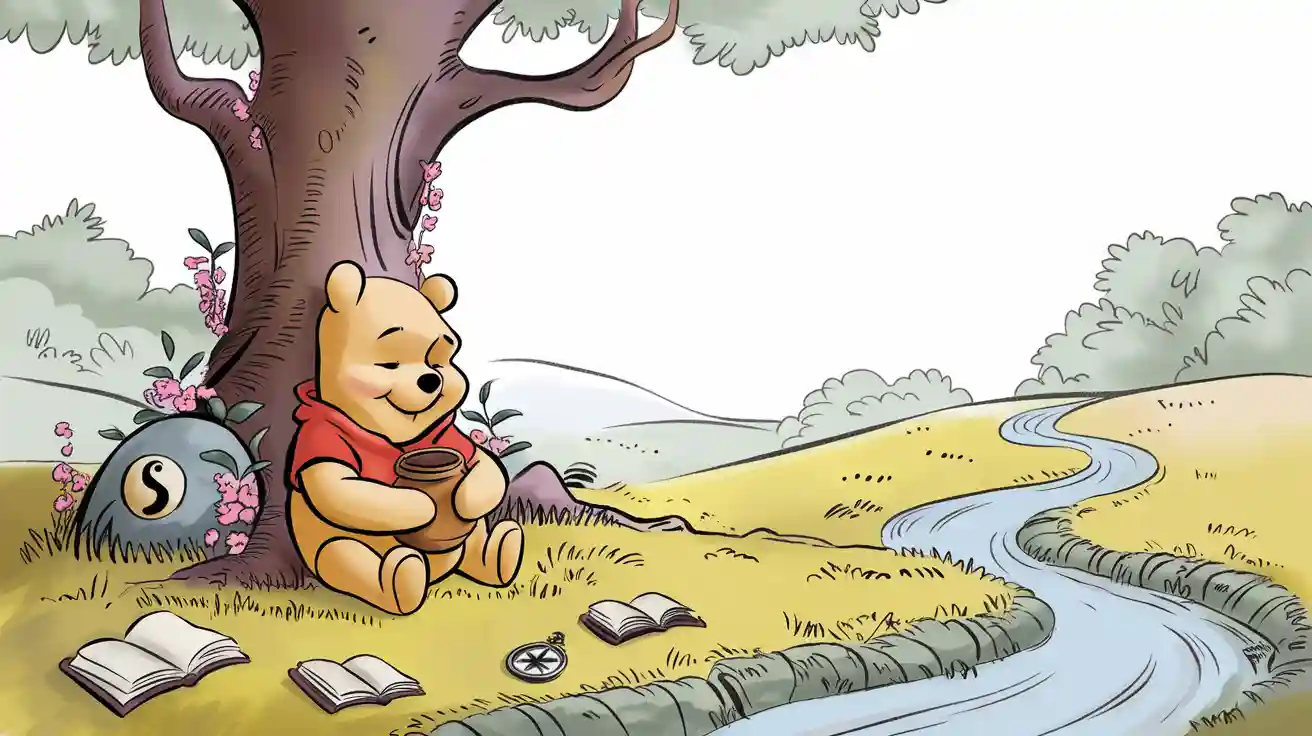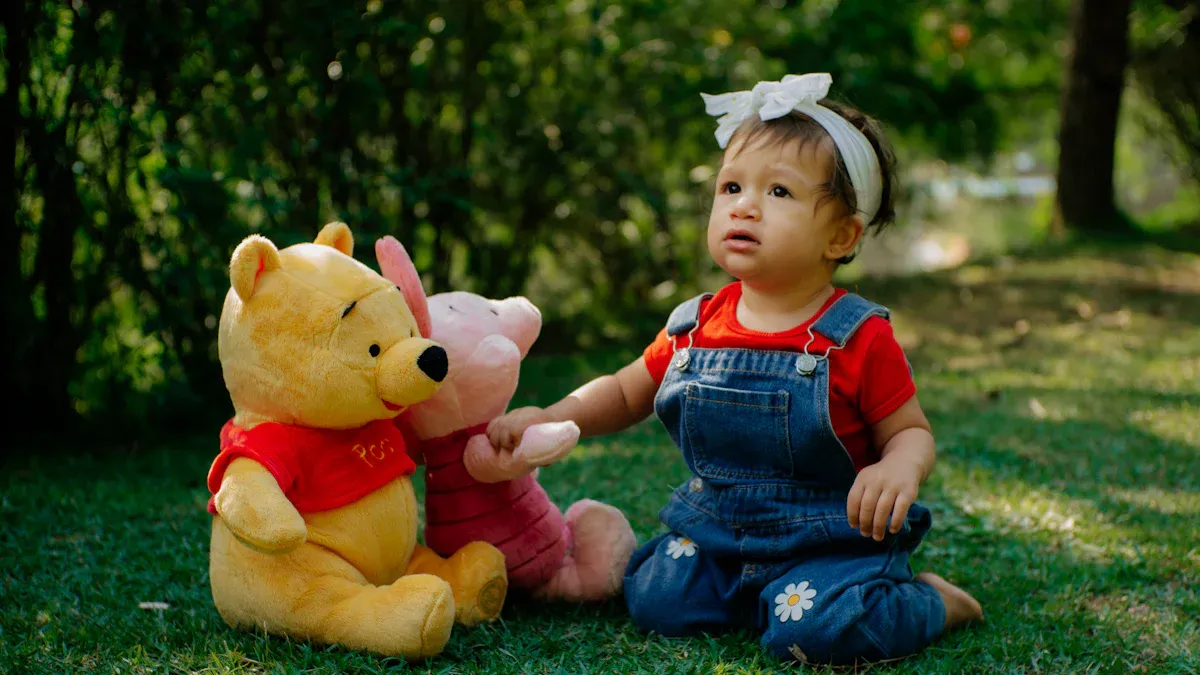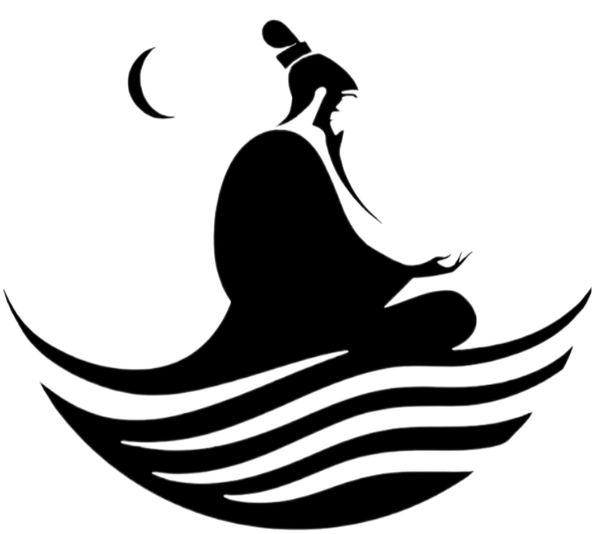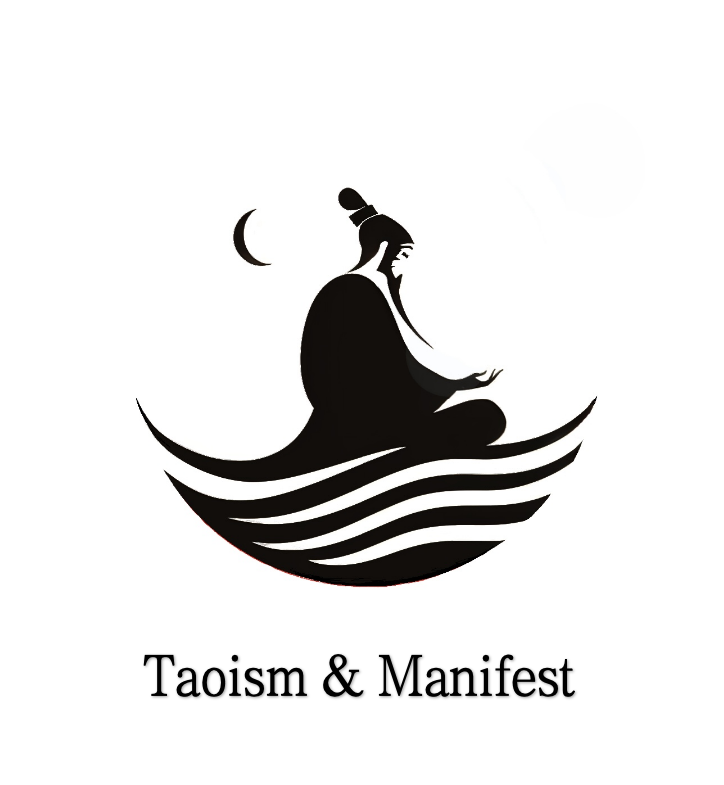
Exploring Life Wisdom and Taoism through Winnie-the-Pooh

Winnie-the-Pooh’s gentle way of living mirrors the core ideas of Taoism. He enjoys each moment and follows the natural flow of his journey. Many people find this wisdom in "The Tao of Pooh," a book by Benjamin Hoff. The book has reached millions and helped readers understand the tao through simple stories. Taoism teaches people to act with ease, stay mindful, and enjoy the beauty of life. These ideas encourage balance and peace. Pooh and his friends show how small choices can lead to lasting happiness.
Key Takeaways
Winnie-the-Pooh shows Taoist wisdom by living a simple life. He enjoys the present moment. He trusts how life moves naturally. - Taoism teaches us to act with ease. It tells us to stay calm. We should accept life as it is. We should not force things or think too much. - Benjamin Hoff’s book uses Pooh to explain Taoism. It helps readers find peace through kindness and simple living. - Overthinking and trying to control everything can make you stressed. Letting go brings balance and happiness. - Being mindful, slowing down, and being kind to yourself and others helps you live with more joy and peace.
Taoism and Pooh

Taoist Principles
Taoism teaches that people find wisdom by living in harmony with the tao, or the natural way of the universe. The tao is not something to force or control. Instead, it guides people to act with a clear mind and gentle heart. The Tao Te Ching, a classic Taoist text, explains that true enlightenment comes from understanding the flow of life. Taoist wisdom values simplicity, patience, and acceptance. People who follow Taoism often seek to let go of extra desires and worries. They trust that the truth will reveal itself when the mind is calm. Wu Wei, or effortless action, stands at the center of Taoist thought. This means acting without struggle, like water flowing around rocks. Taoism also teaches that knowledge is important, but it should not lead to overthinking or pride. Instead, a person should use knowledge to see the truth and live with balance.
Pooh’s Natural Wisdom
Winnie-the-Pooh shows Taoist ideas in his daily life. He enjoys each moment and does not rush. Pooh’s mind stays open and calm, which helps him find happiness in simple things. He often says that today is his favorite day, showing his focus on the present. Pooh’s wisdom comes from his natural way of being. He does not try to force answers or chase after too much knowledge. Instead, he trusts his own mind and accepts what he cannot change. This gentle approach brings him peace and even enlightenment. Pooh’s friends sometimes worry or overthink, but Pooh reminds them that a clear mind leads to joy. He teaches that true wisdom is not about knowing everything, but about living with kindness and truth. Pooh’s actions show that enlightenment and harmony come from accepting oneself and the world as they are.
The Tao of Pooh Book
Benjamin Hoff’s Insights
Benjamin Hoff wanted to make Taoism easy for everyone to understand. He noticed that the Tao Te Ching, the main Taoist book, often confused Western readers. Hoff grew up in rural Oregon and loved reading Winnie-the-Pooh as a child. His interest in Asian art and culture, along with his practice of T’ai Chi, shaped his view of life. He saw that Pooh’s simple and calm nature matched the Taoist idea of living naturally. Hoff wrote the tao of pooh to show how Pooh’s gentle way of being could help people find wisdom and peace. He used the character of Pooh to explain the concept of P’u, or the Uncarved Block, which means staying true to one’s original nature. This approach helped many readers gain understanding and see that enlightenment does not require complex thinking.
Key Teachings
Hoff’s book shares many lessons about wisdom and enlightenment. Pooh shows that people can attain wisdom by living simply and accepting things as they are. He does not force answers or chase after too much knowledge. Instead, he trusts the truth will come when the mind is calm. Hoff explains that enlightenment comes from letting go of struggle and enjoying the present moment. Pooh’s favorite song, Cottleston Pie, teaches harmony with the universe and acceptance of life’s mysteries. The book also warns against busyness and overthinking, which can block true wisdom. Hoff uses other characters, like Owl and Rabbit, to show how overthinking and constant striving do not lead to happiness. Pooh’s way, called Wu Wei, means acting with ease and following the natural flow. This path leads to the wisdom of the great nothing, where peace and understanding grow. In the end, Hoff’s teachings remind readers that wisdom and enlightenment come from being true to oneself and living in harmony with the world.
Character Analysis

Pooh: Simplicity and Wu Wei
Winnie-the-Pooh is a gentle example of living simply. He does not hurry or try to force things. Instead, he lets things happen on their own. In "The Tao of Pooh," Pooh’s way is called effortless action. He likes to hum his favorite song, "Cottleston Pie." Pooh accepts what he cannot do, saying, "A fish can’t whistle and neither can I." This shows he enjoys simple things and does not pretend to be someone else. Pooh keeps his mind calm and open. This helps him look for wisdom without stress. He trusts that answers will come when needed. Rabbit and Owl often think too much, but Pooh enjoys the present. Modern research supports this way of living. People who live simply and do not want too much are happier and think more clearly. Pooh’s way teaches others to focus on what matters and let go of extra worries. In daily life, people can learn from Pooh by slowing down. They can enjoy small things and trust their own feelings. This helps them find peace and harmony, just like Pooh in the Hundred Acre Wood.
Owl: Knowledge and Overthinking
Owl stands for wanting knowledge and the problems of overthinking. He likes to use big words and make things sound hard. For example, Owl says "customary procedure" instead of just "the Thing to Do." Sometimes, his words confuse his friends instead of helping them. Owl once said "Tuesday" is spelled "Twosday" because it is the second day. This made his friends laugh and think the next day would be "Thirdsday." This shows how thinking too much can make easy things seem hard. Taoism warns against this kind of thinking. It says wisdom comes from the heart, not just the mind. If people only try to know more, they can miss the beauty of now and forget who they are. Overthinking can also cause stress and worry. Taoist ideas and modern studies both say trying to control everything makes life harder. Today, many people feel they must know everything and fix every problem. Owl reminds us that letting go of being right or knowing it all can bring peace. True wisdom often comes from experience, kindness, and a quiet mind.
Tip: When you have a problem, stop and listen to your heart. Try not to overthink. The simplest answer is often the best.
Eeyore: Acceptance and Letting Go
Eeyore is known for being gloomy and complaining a lot. He often thinks the worst will happen and feels bad about himself. In one story, Eeyore looks at his reflection and calls himself pathetic. When friends check his house after a storm, he thinks they do not really care. Eeyore’s attitude is different from the Taoist idea of acceptance and letting go. Taoism says people should accept life as it is and let go of bad thoughts. Eeyore always focuses on what is wrong, so he misses the good things. His story shows what happens when someone cannot accept life or let go of worries. Taoism teaches people to welcome change, trust the natural flow, and be kind to themselves and others. Many people today struggle with negative thoughts or feel stuck. Eeyore’s story shows why it is important to change how we think. By accepting and letting go, people can find more joy and peace, even when things are hard.
Note: Being kind to yourself and others can help change a negative mindset and open your heart to new chances.
Taoism in Modern Life
Everyday Examples
People can find Taoist wisdom in daily life. When someone feels stress at work or school, they can stop and take a few slow breaths. This helps calm their mind and brings them back to now. Many people start their day with a short walk outside. They enjoy the fresh air and quiet. This helps them feel connected to the world and find peace before the day starts. Some people clean their desks or rooms. This makes space for new ideas and helps them think clearly. Living simply helps people feel less stress and enjoy what they do.
Letting go of control also brings peace. If plans change, a person can accept it instead of worrying. This helps their mind stay open and flexible. People who do these things often feel more balanced and less stressed by life’s problems.
Practical Wisdom
Taoist wisdom says working with the flow of life helps people feel better. Experts give some steps to use these ideas every day:
Breathe mindfully each day to calm your mind and notice more.
Make life simple by focusing on what matters and dropping extra tasks.
Spend time in nature to feel connected and steady.
Let things happen naturally and do not force them.
Know that progress takes time and enjoy each part.
These habits help people trust themselves and find wisdom in normal moments. By living with their values, they feel more real and less pushed by others. Mindfulness, acceptance, and simple living make room for peace and joy. Taoist teachings remind us that wisdom grows when our minds are calm and open to now.
Enduring Wisdom
Lasting Value
Taoist wisdom still shapes how people think and act today. Many leaders and workers in China use Taoist ideas at work. These ideas help people stay calm and work well together. They also help people find new ways to solve problems. Taoism teaches that wisdom needs compassion. People learn to care for others while searching for truth. This brings balance to their lives at home and at work. "The Tao of Pooh" inspires readers to look inside themselves for wisdom. Readers learn that true wisdom comes from knowing themselves. They also learn to control their own actions. This journey brings more joy and meaning to life. The book says knowledge matters, but real growth comes from using compassion and self-awareness every day.
"Knowing others is intelligence; knowing yourself is true wisdom. Mastering others is strength; mastering yourself is true power."
— The Tao of Pooh
Universal Lessons
Taoism gives life lessons that anyone can use anywhere. Pooh’s simple way shows that happiness comes from accepting life as it is. He does not try to know more than he needs. Instead, he listens to his heart and trusts the natural flow. Taoism values simple living and enjoying the present moment. Compassion helps people connect and brings peace to daily life. The stories in "The Tao of Pooh" remind us that overthinking can block wisdom. When people let go and follow their own path, they find harmony. These lessons tell everyone to be kind, try to understand, and trust that wisdom will come. Life becomes better when people remember that wisdom and compassion go together.
Benjamin Hoff’s "The Tao of Pooh" uses well-known characters to help people understand Taoist wisdom. The book shows how Pooh’s simple choices teach us to live in the present, accept life, and be ourselves. Many people feel happier and calmer when they follow these ideas:
1. Go with the flow, just like Pooh. 2. Take your time and enjoy small things. 3. Be kind to yourself and others.
Being simple, accepting, and real is always important. These ideas help people feel happy and balanced each day.
FAQ
What is Taoism in simple words?
Taoism teaches people to live in harmony with nature. It values peace, kindness, and going with the flow. People who follow Taoism try to keep life simple and enjoy each moment.
How does Winnie-the-Pooh show Taoist ideas?
Pooh lives in the present and enjoys simple things. He does not worry about the future or try to control everything. His calm and gentle way matches Taoist wisdom.
Why does "The Tao of Pooh" use storybook characters?
Benjamin Hoff uses Pooh and his friends to explain Taoist ideas. These characters make the lessons easy to understand. Readers can see wisdom in everyday actions.
Can Taoist wisdom help with stress?
Yes! Taoist wisdom teaches people to slow down and accept what happens. Taking deep breaths and letting go of worries can help anyone feel calmer.
Is Taoism only for adults?
No. People of all ages can learn from Taoism. Kids and adults both find value in living simply, being kind, and enjoying life’s small moments.





